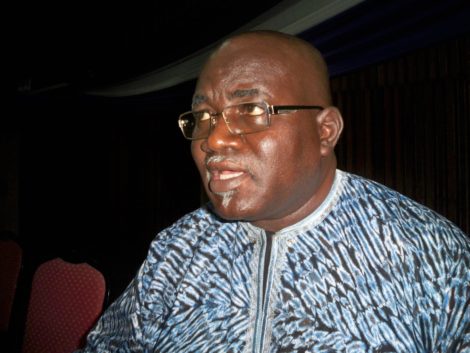
Last Tuesday, I spoke about the mindset of our leaders and us the followers. I pointed out that both parties see the leaders as masters rather than servants and partly attributed our retrogression as a state to this fact. But there is something perhaps more fundamentally insidious that I’ve come to realise from my time in government and my observations since.

Before becoming a minister I knew that my engagement at that level was going to be temporary. In fact, I mentally gave myself three years to try and bring about the changes I believed were needed in governance at the time. I believed there needed to be a number of structural changes in the information and communication sector and immediately set about trying to achieve them, all the time fully aware that after a few years I would become an “ordinary citizen” again.
I tell people these days that at the time I was a minister, I could pick up the phone and call a police officer and tell him to arrest Mr. Jones and he would do it without questioning. Mr. Jones would be arrested and detained and after being held in a police cell perhaps for a day or two, the police officer would come back to me to ask “please Sir, what should we do with him?”
However, if I had done that and had done nothing to change the system, when I ceased being a minister, someone else would have been able to call, perhaps the same police officer and tell him to arrest Julius Spencer and he would have done it. But unfortunately, I realized, while I was in government and after, that the vast majority of those who go into government do not think about becoming ordinary citizens again. They have the erroneous belief that they are going to be in power permanently.
This false belief leads to what I now refer to as the them and us syndrome.
Many times while I was in government, I heard my colleagues talking about “they” and “us”. In particular, while I was trying to get SLBS corporatized, I was surprised when one of my colleagues who was against the move said “you can’t trust these journalists.
We cannot give them something as powerful as a radio station. They will use it against us.” Needless to say, I failed to achieve the objective of transforming the SLBS into a corporation. But this is just one example and I know that this attitude exists among our political leaders or masters to this day. It is a mindset that sees the political leadership as being on one side and the “ordinary citizens” on another side with interests that do not converge. The politicians and those benefiting directly from them therefore go all out to protect their territory. Consequently, the policies and practices they put in place, while at times seeming to be for the general good, have been carefully examined to ensure they do not threaten their privileged positions.
The examples of this abound and we can go as far back as pre-independence with Siaka Stevens’ elections before independence movement and his detention by the SLPP, or the NPRC and Peace before elections, or Parliament and modifications of the 1991 Constitution from the original Peter Tucker document, etc., etc. This recognition of the them and us syndrome in politics is what led me to state at a conference on the way forward, organized by ENCISS in 2008, that politicians will never see the light until they lose power.
I believe this is the case because most people who get into political power allow themselves to be intoxicated by the trappings of power and tend to see themselves as special beings and so cannot envisage a time when they will not be in power. And I know what the trappings of power feel like because I have experienced it. For example, I travelled a number of times with President Kabbah on a private jet to Europe and basked in the special privileges that a head of state enjoys.
At the time, even when I travelled alone to the UK, I received VIP treatment. I would be met on board the plane and would be the first person to leave, not through the normal route, but down the stairs to a car waiting on the tarmac, driven to the VIP lounge where my travelling documents will be taken and I will be served tea or coffee and biscuits, wait for a little while and my passport will be returned to me and a very British official will say to me “your luggage is in the car Sir. You may leave when you’re ready”.
For this kind of thing not to get to your head, you need to have a measure of humility that is not present in most people.
Well I’m not sure it was humility that caused me to leave government voluntarily and move from a ministerial office in the imposing Youyi Building to a small office on Upper Waterloo Street in 2001 after just three years as a government minister. But I do know that I got frustrated spending my time doing administrative tasks when it became clear that some of the things I wanted to do on a structural level in my ministry, I did not have a free hand to do. And of course, the pay was not particularly attractive. But back to the them and us syndrome.
I was amused and a bit surprised when I listened recently to a recording of a minister that was widely circulated on social media. He made statements including the following:
“Stand up to these market women. If they don’t want to vote for us, so be it.” Hmmm…
“We were in opposition, now we are in power for 10 years. We are going to elections. I hope we win it, but if we don’t and so what?” Really? I don’t believe he actually said that.
I was surprised because it is very unusual for a government minister to be as blunt as he was, but I was pleased because I totally agree with what he said and the applause from the audience showed that many people who were present at the event where he made the comments also agreed with him. I was amused because I first of all wondered whether he was just talking the talk or was prepared to walk the walk. I’m also 100 percent sure that many of his colleagues are not pleased with him and are currently making derogatory comments behind his back.
But the unpleasant truth that all those in positions of political power will do well to understand and accept is that until you rise above the them and us syndrome and do what is best for the generality of the population regardless of tribe, political party or personal relationships, our country will not make real progress. And make no mistake, it will come back to hunt you because one day, whether you like it or not, you will be an ordinary citizen like the rest of us. So see the light and embrace it while you have the opportunity.



